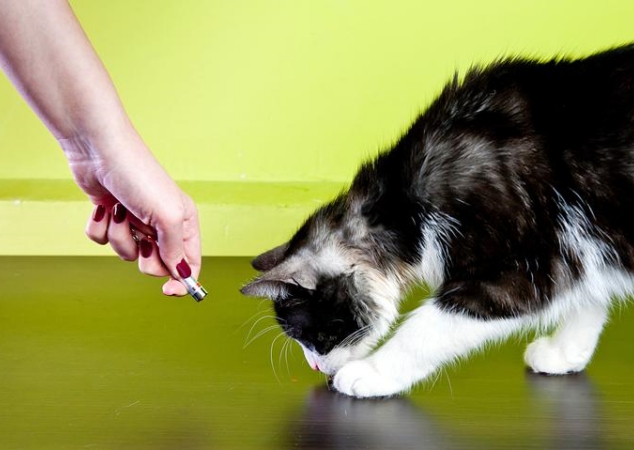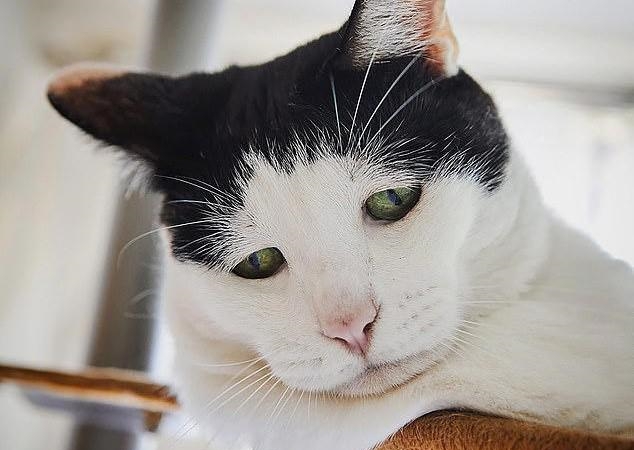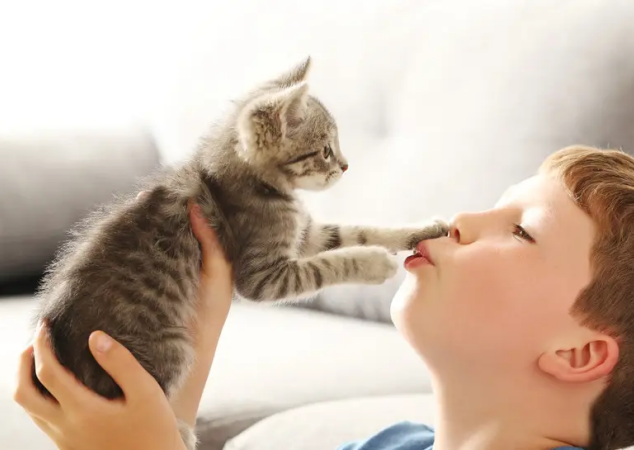The appeal of using laser pointers during cat play is undeniable for many cat owners. Who wouldn’t want to see their adorable furball chasing after a red dot dancing on the floor? But beneath this seemingly harmless lies a potential problem: laser pointer syndrome in cats.
It refers to a cluster of peculiar behaviors some cats develop after prolonged exposure to laser points. It triggers their hunting instincts and endless curiosity. When a quick, moving red dot catches their attention, they leap, pounce, and dart to capture the elusive red dot, making it adorable to watch in the eyes of cat owners. It’s a fun, although perplexing, game of cat and light.

Cats are natural hunters, so anything that moves quickly catches their attention, just like the tiny red light. It mimics a prey’s movement, which triggers their natural predatory instincts. The quick, predictable motions of the laser point pique their curiosity, driving them to stalk and chase it relentlessly. It isn’t just about physical activity; it engages their sharp minds, keeping them mentally agile as they strategize and run after their elusive target.

Watching your feline companion leap and dart while chasing the red dot can be hilarious and adorable, but it has some adverse effects. Below are the potential downsides of this popular cat play:
At its core, Laser Pointer Syndrome in cats occurs when your pet can’t catch the ever-elusive dot. It might seem harmless and entertaining, but prolonged and repeated exposure without getting a tangible reward can result in frustration and anxiety in cats. Imagine playing a game you could never win – it’s bound to leave you feeling depressed and anxious.
Laser pointers can result in obsessive behavior in your feline buddy, as an unattainable goal triggers a never-ending pursuit. They may become fixated on chasing and stalking shadows and reflection, even without a laser pointer, showing signs of compulsion. This behavior can interfere with their daily routines, thus affecting your furry baby’s overall well-being.
Besides its adverse effect on behavior, Laser Pointer Syndrome in cats can also cause physical strain. Continuous jumping, running, and abrupt motions can strain their muscles and joints, which can cause injuries. It’s essential to monitor your kitty’s physical condition during cat play and give your furkid a rest to prevent physical overexertion.
There’s also a potential risk of eye damage. The bright red dot can threaten their retina, which can cause blindness. Picture yourself staring directly at the sun – prolonged exposure will leave your eyes sore.
Laser pointer play doesn’t have the tangible rewards traditional hunting does, as it doesn’t have prey to catch. Over time, it can impact your whiskered companion’s ability to use and hone their real-life hunting skills, potentially affecting their survival instincts.
Intense laser play without a proper cool-down can cause frustration and overstimulation, which might lead to aggressive behavior. Cats may redirect their frustration to other pets or humans, which can be a safety concern for your feline buddy and other household members.

There are loads of cat toys that are equally stimulating and entertaining to use without the risks of Laser Pointer Syndrome in cats. Some of them are:
Mimicking the bird’s movements, cats find feather wands appealing, triggering their hunting instincts. This interactive toy lets your frolic furball engage in a more tangible and satisfying hunting experience.
Mix play with reward using treat dispensing toys. Treat dispensers encourage problem-solving skills and improve mental stimulation while giving your four-legged companion a yummy incentive for their efforts.
Toys filled with silvervine or catnip are classic. The scent of these herbs gives off euphoric sensations and creates a sensory-rich experience, making them irresistible to cats. These all-time favorite cat toys are not only entertaining but also provide a satisfying kicking and chewing experience.
Simple yet effective, ping pong balls’ quick, unpredictable movements make them alluring to cats. They’re lightweight, allowing easy batting and chasing, offering a physically satisfying playtime.
Laser pointers may offer you and your feline friend an enjoyable and exciting playtime experience. However, it’s crucial to be mindful of the potential risks of Laser Pointer Syndrome in cats. Using the toys above can satisfy and exercise their primal instincts and ensure a well-rounded and fun play routine. A balance of engaging activities nurtures their physical and mental health.

